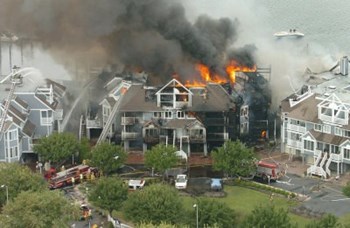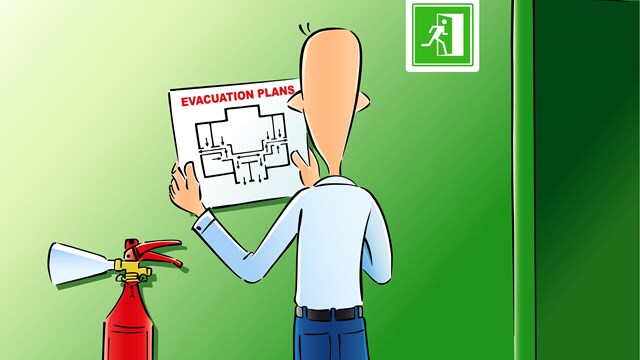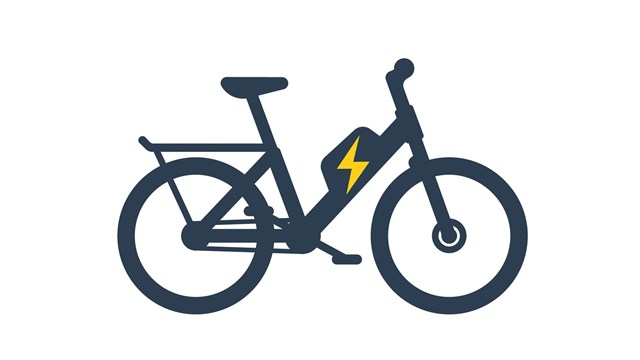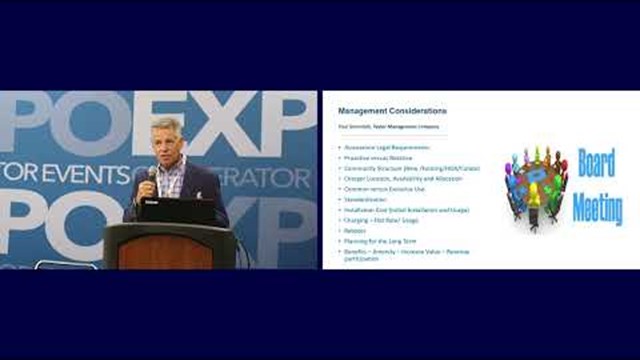
It's a four-letter word that no one ever wants to hear—fire! High-rise and apartment-building fires are, mercifully, a rare occurrence, but they do happen and they can be a real-life nightmare, similar to what's depicted in the 1970s-era disaster movie The Towering Inferno, or the very real tragedy of 9/11. The idea of being trapped by a raging fire hundreds of feet in the air is something nobody wants to contemplate.
Unfortunately though, each year more than 4,000 Americans die and more than 25,000 are injured in fires. Direct property loss due to fires is estimated at $8.6 billion annually, so this is a topic that must be thought about.
"It's really sad because most fires are preventable," says Ken Farmer, branch chief prevention and leadership, U.S. Fire Administration. "A tanker exploding is not preventable, but cardboard against a furnace is."
And this month, during what is supposed to be a joyous holiday season, Farmer also says, "It's also mind-boggling that there are deaths from fires on Christmas day and most of them are kids."
Fire 101
Living in an apartment building or high rise is much different than living in a single family home, and experiencing a fire is no exception.
"Fire originates in the same way, but building fires threaten more people and dwellings…the threat of loss of life and property is greater," explains Charles L. Gandy, P.E., professional engineer in fire protection engineering, former volunteer fireman and past president of the New Jersey Chapter of the Society of Fire Protection Engineers.
Fire may originate in the same way, but Farmer says, each blaze is different. "How bad the fire gets depends on the maintenance of the structure," says Farmer. "If left uncontrolled, all it knows is consumption and destruction, so if you have garbage and litter, those are going to burn faster than fires where the homes are clean and being picked up."
Farmer also explains that today's fires are burning hotter and faster than before. Why? "The chemicals our 'junk' is made of are more deadly than had been in years past, so how fast the fire will spread depends on the fire load."
Since fires seem to burn faster than the speed of light, fire experts are urging the installation of sprinklers in all buildings. All newly constructed buildings are already required to have sprinklers.
Sprinkler Security
In September, New Jersey proposed that older high-rise apartment buildings and condos be required to add sprinklers for fire safety. Those built since the late 1980s were required to have sprinklers, but not the older buildings. Right now, about 400 high-rise buildings—75 or more feet high—have no sprinklers or only partial sprinkler systems.
Vincent Fichera, executive director of the New Jersey Fire Sprinkler Advisory Board, says that it's the board's mission to educate the public of the lifesaving value of fire sprinklers. To do so, this advocacy group talks to engineers, architects, members of the construction industry, government officials and the general public.
"People think they know about sprinklers, but there are a lot of misconceptions," says Fichera. "Most fires occur between midnight and six a.m. If a fire extinguisher is used properly, it can be a firefighting tool, but you have to trust the resident to use it and use it correctly or it can make the situation worse. Plus, a fire extinguisher is limited use. Once it's exhausted, then you're out of luck. A fire sprinkler will continually put water on the fire until it puts it out."
"I can't emphasize fire sprinklers enough," says Gandy. "It adds a cost, but according to the National Fire Protection Association, there has never been a death in a multifamily building with a fire sprinkler. It just doesn't happen. Sprinklers stop fires when they are small. If I was shopping for an apartment above the third floor, I'd get one with sprinklers."
Sprinklers can be retrofitted with sheetrock added around the pipes. "Yes there is a significant cost, but we're saying that when you balance the cost against the potential fatalities or injuries, it's worth it. No building is completely safe unless it has sprinklers."
Even if your building has sprinklers, it's still important to do your share and prevent fires from starting. So we've provided you with some do's and don'ts for preventing and protecting—preventing fires and protecting yourself in case one should start.
Fire Safety Tips
Do keep a watchful eye. According to the 2005 U.S. Fire Administration/National Fire Data Center, cooking is actually the leading cause of fires and fire injuries in structures. So don't just walk away while your favorite dish simmers, because cooking left unattended is the leading factor contributing to cooking fires.
Another leading cause of fire fatalities is falling asleep while smoking. Most often fires begin when upholstered furniture, mattresses or bedding ignite. The person most often killed is the person that was smoking.
Do keep it legal. "In large cities, such as Baltimore, there are deaths related to fires when the residents illegally try to hook up their electricity or if they can't pay the bill, they try bringing it in from somewhere else," says Farmer.
Do warm it up right. All heaters are dangerous if not used properly. According to the National Fire Protection Association, most home-heating fires involve portable or "space" heaters; so electric heaters must be selected and used with care. "In low-income areas that don't have central heat, portable heaters—especially kerosene heaters which can tip—are more of a problem," says Gandy. Choose models with automatic safety switches that turn off the unit if it is tipped over accidentally. Read the safety instructions that come with your heater.
Do have a plan! As I write this article, a large portion of San Diego County in Southern California is in flames. Half a million people have been evacuated, some with just the clothes on their backs, but they are safe. Do you know how you'll get out in case of an emergency, where you'll go or how to reach your family? "A good evacuation plan gets the people out safely," C. Kenneth Anderson, past president of the New Jersey State Fire Chiefs Association and member of the New Jersey Fire Safety Commission. "But a mistake is that they haven't practiced their route out. In a fire, they'll panic and think, 'I'll go up and get away or where is my safe exit for this?' It needs to be planned and practiced." Practice with all the residents at least two times a year. Make sure you know how to evacuate special situations as well, including the elderly that might need assistance, young children who may be home alone and the disabled.
Do get out! You know that question, "If someone shouted 'fire' and you only had time to grab one item what would it be?" Well, the bottom line is that the fire department wants you out. Don't waste time grabbing things—unless the fire department has told you that you have time to grab some valuables. Perhaps the fire is in another building and they are only evacuating as a precaution, but your number one goal in a fire is to get out. Don't go back! And stay out.
Don't overload. "The good news is that a lot of the codes are now helping to prevent fires, including circuit breakers," says Farmer. "But some residents still ignore the circuits and overload."
Don't delay! "Call the fire department immediately," says Gandy. "Delayed alarms are major contributing factors to loss of life. People think they can control fires on their own. Sound the alarm immediately. Then, if the fire is small and you are competent with an extinguisher, give it a try. I am aware of one fire where the person tried six empty fire extinguishers, which didn't do the job, and they should've been running out of the building and calling a fire department." Make sure you close the doors to prevent the spreading of smoke and fire as well.
Lisa Iannucci is a freelance writer, published author and mother of three living in Poughkeepsie, New York.






Comments
Leave a Comment